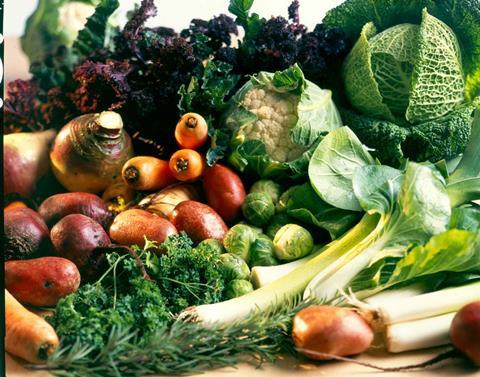
A mild spring puts everyone in a good mood, but it’s especially important for British veg growers, who benefit from good planting conditions and the chance to get ahead for the season.
Many homegrown crops are gearing up for summer harvests, with some already beginning ahead of schedule due to recent warm temperatures. The British asparagus season began some three weeks ahead of last year, with growers hoping the early start will secure a more level supply for the season, with fewer production peaks.
Spring onions, dwarf beans, fine beans and Tenderstem broccoli will also benefit from the mild spring, according to MD of grower group Red Star Growers, James Revill, who says veg sales are growing thanks to retailers opening new stores.
“The key is the weather – a good spring means you can get on and prepare for the season, which is very important,” says Revill. “Costs are increasing all the time so it’s challenging. However, there appears to be an increase in consumer focus on British produce, which is growing each year.”
For such a broad category, Kantar figures may not tell the full story – value was flat (+0.0 per cent), while a modest volume rise (+1.7 per cent) was cancelled out by price decreases, according to analysts. Veg fashions still appear to be impacting sales – spinach sales rose by 27 per cent over the last year thanks to the ongoing smoothie trend, while the less sexy turnips and parsnips were among the biggest fallers.
Carrot sales have been strong, according to MD of Yorkshire root grower MH Poskitt, Guy Poskitt, and there may be some opportunity to displace imports. “There is definitely no shortage and there is a great opportunity to import less. The competition from abroad hasn’t been as cheap thanks to the exchange rate,” he says. “There’s been some really strong Easter promotions with our customers, which is helping to lift sales. Parsnip sales have been reasonably good, they’re more balanced than carrots as there’s not a huge amount there.”
Good news aside, cost pressures and price deflation are by no means a thing of a past in root vegetables, says Poskitt. “We’re very close to being unsustainable because, while retail prices haven’t increased on last year, costs have gone up. Seed has gone up by 15 per cent because of currency, and then wages have gone up due to the National Living Wage. We’re in a race to the bottom,” he warns.
And while retail promotions do help shift volumes, and many retailers have pledged to foot the bill for such activity, Poskitt says they can also unbalance the market. “What we’re finding is that promotions are so aggressive on volume that we have to restructure our operations slightly, in terms of equipment rather than staff,” he says. “Deflation in carrots is a big problem – we need to look at another route to market rather than just price. Wider specifications of product are probably the biggest success story.”
One product that has managed to hold onto its premium price point, and see 15 per cent sales growth this year, is branded brassica Tenderstem. Coregeo chief marketing officer Michelle Toft says: “We’ve seen noticeable increases from several retailers including Morrisons, who decided to put the brand logo on pack in October 2016.” The Tenderstem team is now set to go after further share in foodservice and food to go, and is looking at on-menu branding. “We also want to keep working with supermarkets to develop ideas for snack packs, salads and meal solutions,” Toft adds.
Cost pressures and price deflation continue to make life hard for those in veg supply, but expensive imports and consumer preference for veg NPD mean opportunities are out there.



